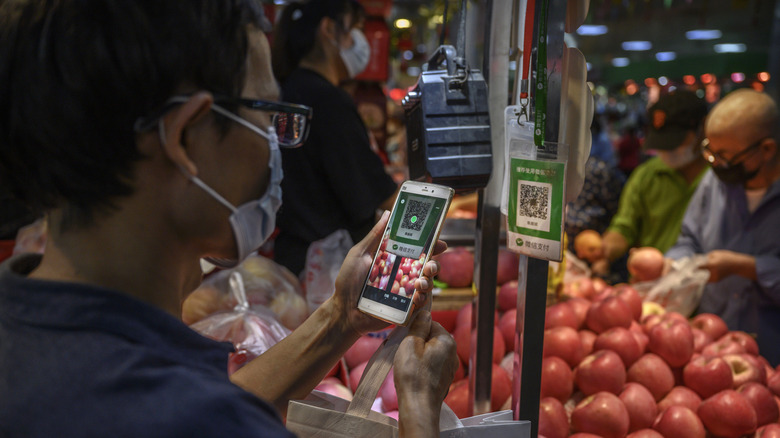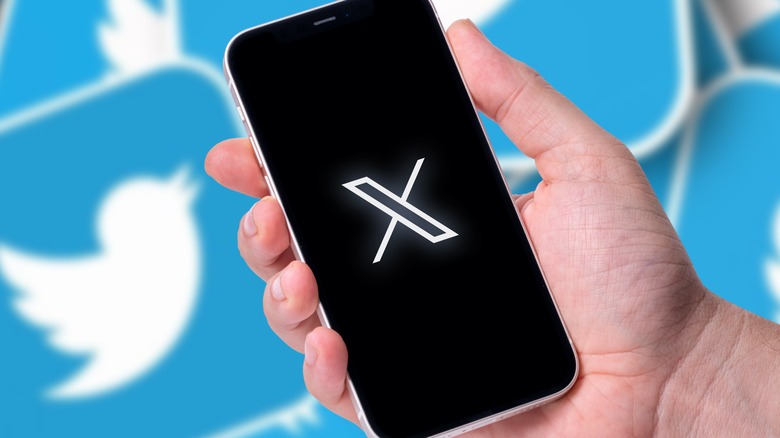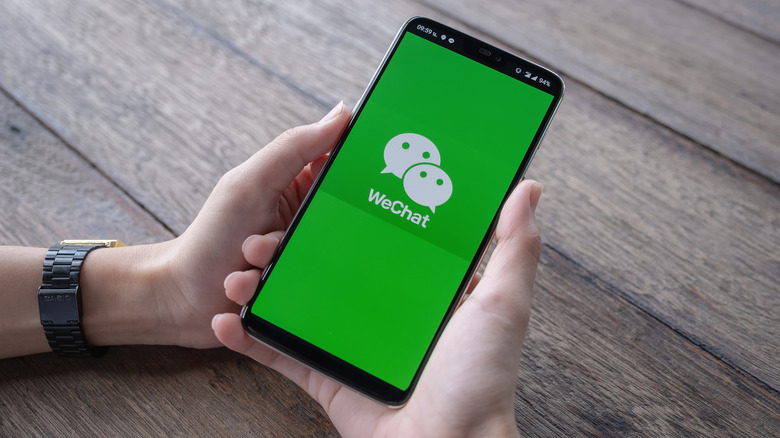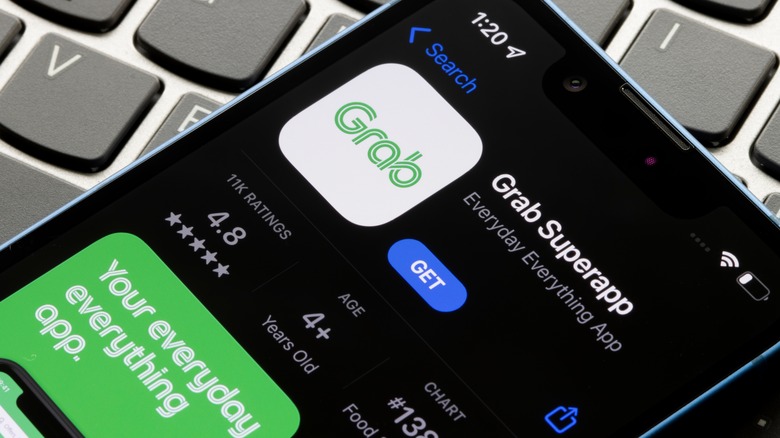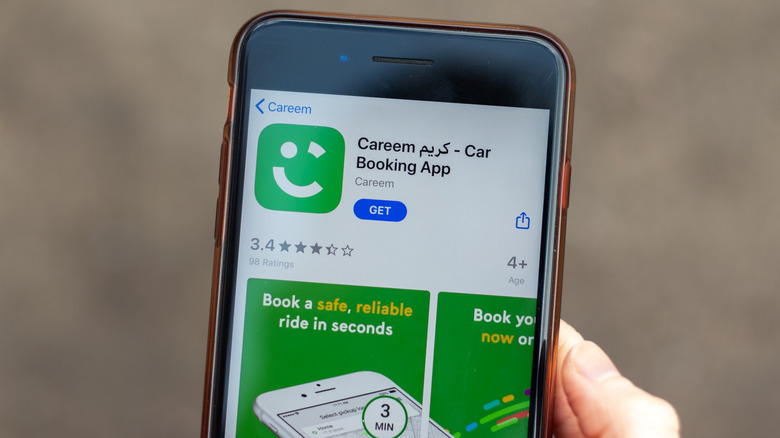The Most Popular 'Super Apps' In The World (And What They Can Do)
The recent trend of all-encompassing super apps has gained momentum in the U.S., and some well-known players are making ambitious strides in this direction. One notable example is the recent Twitter rebrand as "X," spearheaded by none other than Elon Musk. Musk aims to transform Twitter into an all-in-one app experience. The new vision for "X" encompasses audio, video, messaging, payments, AI-driven services, and more, aiming to create a global marketplace.
This rebranding effort is part of a broader trend where tech giants and innovative companies are venturing into the realm of super apps. For instance, Uber wants to be a 'super app' for all things transportation and has been exploring this approach by incorporating services beyond ride-hailing, such as food delivery, grocery delivery, and financial services.
While they are a relatively recent phenomenon in the U.S., super apps have been around for a long time in other parts of the world, streamlining user experiences by reducing the need for multiple app downloads and simplifying tasks like communication, payments, shopping, and more.
As the super app trend continues to evolve, its impact on user behavior and digital ecosystems remains to be seen. In the meantime, we can take a closer look at these other super apps worldwide that have managed to grab markets and become successful, hopefully getting a glimpse at what this tech has in store for us in the future.
What are super apps?
The term "super app" can lead to some confusion. If a super app is a mobile or web application that brings together a wide range of services within a single platform, then is Facebook, with its social features, marketplace, and video streaming, a super app? While there is no perfect definition for a super app, there are things that they have in common. Most super apps encompass social networking, e-commerce, banking, messaging, food delivery, transportation services, and more. The key distinction lies in the convenience of performing diverse tasks without switching between multiple distinct apps.
Coined by BlackBerry founder Mike Lazaridis, the concept of super apps has gained prominence, particularly in regions like Asia, Africa, and Central America. These apps consolidate essential core features and individual mini-apps, offering users a seamless and integrated experience. And that seems to be the secret sauce for super apps — using existing user traffic and distribution to drive lead generation and traffic. The approach to becoming a super app varies, with different apps adopting unique strategies. Super apps often localize their services to cater to specific regions, gaining larger user bases. Another strategy involves creating an ecosystem of apps under a single umbrella.
Regions like North America have been slower to embrace super apps due to the prevalence of existing tech giants and established app ecosystems. Still, they have found widespread adoption in regions where smartphones are the primary gateway to the internet.
WeChat, developed by Tencent, is a quintessential example of a super app. Introduced initially as Weixin in 2011, WeChat swiftly gained prominence, becoming the world's largest standalone mobile app by 2018, with over 1 billion active users. At its core, WeChat offers instant messaging, supporting text, voice, and video chats. Users can engage in video conferencing, play games, and share media, all within the same app. WeChat's "mini programs" concept is particularly notable, enabling users to access many services such as filters, translators, and payments without downloading separate applications.
WeChat also redefines mobile payments. Its integrated wallet feature allows users to make secure transactions, pay bills, and transfer money to friends and family. Users can even scan QR codes for payments at physical stores, restaurants, and more, transforming how people manage their finances.
Beyond communication and financial services, WeChat embraces social media — users can post updates on their "Moments" feed, similar to a social media timeline, share photos, and connect with friends. WeChat's super app status extends to entertainment and lifestyle. It serves as a hub for various forms of media, from reading articles to streaming videos. Users can also hail rides, order food, and book appointments for services directly within the app.
It houses a marketplace where users can shop for products making purchases without leaving the app. Additionally, businesses can establish a presence through "Official Accounts" and "Mini Programs," enabling them to interact with customers, offer customer support, and even create customized experiences.
Grab
Grab, the Southeast Asian tech unicorn founded in 2012, has transformed itself from a ride-hailing service into a comprehensive super app encompassing various on-demand services. What started as GrabTaxi in Malaysia has evolved into a platform that offers an array of services under one roof.
Significant milestones mark the journey from its inception to becoming a super app. Expanding from ride-hailing, Grab diversified its operations over the years. It introduced GrabCar and GrabBike in different countries and services like GrabExpress for logistics and GrabFood for food delivery. The launch of GrabPay for online payments was pivotal, creating a seamless mobile wallet for transactions.
Grab's rise to super app status was punctuated by its merger with Uber in 2018, consolidating its influence across Southeast Asia. This move, coupled with other expansions and partnerships, propelled Grab to achieve the coveted title of a super app by 2019. With a digital full bank license in Singapore and a listing on Nasdaq, Grab's valuation soared to around $40 billion in 2021.
At the heart of Grab's success as a super app is GrabPay, the mobile wallet that serves as the linchpin of its comprehensive business model. This wallet streamlines transactions for services like GrabCar, GrabExpress, and GrabFood. Users can book rides, order food, and pay securely within the app. Grab's revenue model revolves around a portion of the fare being deducted as a service fee, with the rest going to the drivers.
Alipay
The transition from cash to e-money has been stark in China, with Alipay and WeChat dominating the online payment landscape, surpassing cash transactions. Alipay, in particular, has become a favored tool. What started as a secure e-commerce tool for Alibaba in 2004 has transformed into a super app that transcends transactions.
One of its central features is its digital wallet functionality, connecting users' bank accounts for various financial activities, including credit card transactions, utility payments, and peer-to-peer transfers. This integration of financial services is a cornerstone of Alipay's super app status, allowing users to manage their finances and conduct transactions within the app's ecosystem.
Beyond financial transactions, Alipay extends its versatility to other aspects of daily life. It serves as a hub for hailing rides for Chinese tourists overseas with the option of paying for Uber rides, effectively integrating transportation services into the app. Users can effortlessly book rides, manage their commutes, and track their trips, enhancing convenience for urban residents. The app's shopping capabilities provide users access to various e-commerce platforms, allowing them to browse, purchase, and track orders without leaving the app. Alipay's all-encompassing approach also extends to utility payments, allowing users to settle bills conveniently through the app.
Alipay also leverages technology to offer incentives to users, such as discounts, gifts, and interactive games tied to cultural events. This gamification aspect enhances user engagement and makes the app more than just a financial tool — it becomes an integrated part of users' daily routines and experiences.
Gojek
Founded in 2010 by Nadiem Makarim, Kevin Aluwi, and Michaelangelo Moran, Gojek initially started as a call center for courier delivery and ride-hailing services. Its journey from those humble beginnings to becoming a super app exemplifies remarkable innovation — even that might be an understatement considering Gojek's offerings as a super app.
At the heart of Gojek's offerings is GoRide, a ride-hailing service that revolutionized transportation in Indonesia. This service extends to GoCar, catering to users seeking more private and comfortable rides. Gojek's GoGreen service offers electric vehicle options for those looking for a more eco-friendly commute. GoSend, another core service, facilitates on-demand courier delivery, allowing users to send packages swiftly and efficiently.
GoFood addresses food delivery. Beyond food, Gojek's GoShop service allows users to order groceries and essential items. GoPay, the digital payment system integrated into the app, enables cashless transactions, transforming Gojek into a financial hub. This service is not limited to the Gojek ecosystem; users can also use GoPay to make online and offline payments at various merchants. Users can invest with GoInvestasi, manage their finances through GoBills, and even access insurance through GoSure.
GoLife takes care of users' daily tasks and errands, offering services like house cleaning, beauty treatments, and massages, all accessible at the touch of a button. The GoTix service focuses on entertainment, allowing users to book movie tickets, event passes, and more. GoMed addresses healthcare needs, offering online consultations and prescription deliveries, a particularly relevant feature in the current global climate.
Careem
Careem has carved a niche as a renowned ride-hailing app catering exclusively to the Middle East. Standing as a direct competitor to Uber, Careem holds a significant presence with over 2.5 million drivers spanning 10 countries and 70 cities, making it the largest ride-hailing platform in the region.
Users can book rides ranging from taxis to city-to-city trips and even opt for bike rides for shorter distances. This diversity in transportation options ensures that users have the flexibility to choose the most suitable mode of travel for their needs. Careem has ventured into the domain of food delivery. The app allows users to place customized food orders from various restaurants with real-time tracking and convenient payment options.
Expanding further, Careem has ventured into groceries and essential deliveries through features like "Quik Groceries." This service enables users to have daily essentials delivered quickly and efficiently, making it particularly useful for busy individuals looking to streamline their shopping experience. Beyond transportation and food, Careem's super app encompasses various lifestyle services. Users can access services such as home cleaning, salon bookings, and ticket purchases, all through the same platform. This holistic approach allows users to manage multiple aspects of their lives from a single app, enhancing convenience and efficiency.
Careem Pay, the app's digital wallet, adds a layer of convenience to financial transactions. Users can conveniently pay for rides, food deliveries, and various services using the in-app wallet, streamlining the payment process and reducing the need for cash transactions.
